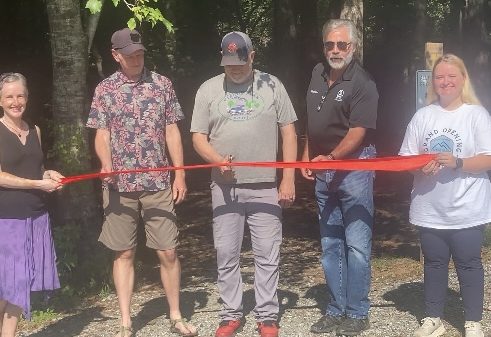NCDHHS urges well and septic safety following Hurricane Helene
Published 12:15 pm Friday, October 11, 2024
|
Getting your Trinity Audio player ready...
|
The North Carolina Department of Health and Human Services is urging western North Carolinians who rely on a private well for their drinking water and were impacted by Hurricane Helene to continue to use bottled, boiled or treated water until private wells can be disinfected and tested for dangerous bacteria. Safety measures and precautions are also needed for septic systems impacted by the storm before returning to use.
People in flood and storm-impacted areas should have their private wells and septic systems inspected and repaired if damaged. Wells should be disinfected and tested after repairs to ensure water safety, while septic systems should be inspected to confirm they are functioning properly.
North Carolinians who lost access to water or septic through a private well or damaged septic system due to Hurricane Helene may be eligible for FEMA assistance. Visit disasterassistance.gov or call 800-621-3362 to apply for FEMA disaster assistance and learn about other resources available to help you and your family recover from the storm.
Safety Measures for Private Wells
Excessive rain and flooding can cause water in private wells to become contaminated, making people sick if they consume it. People with medical conditions can be particularly susceptible to severe illness or even death related to dangerous bacteria from contaminated wells.
After a flood, your private well must be assessed for damage, disinfected, and tested. People mustn’t drink or use water from a private well that has been damaged or flooded until it has been properly disinfected and tested after the storm. Potentially contaminated water should not be used for drinking, washing and preparing food, making ice, preparing baby formula, washing dishes, brushing teeth, or washing hands. Use an alternative water source until testing confirms contamination is no longer detected in your water. Alternative sources include bottled water, a source you know isn’t contaminated, or boiling your water for at least one minute before use.
If you can determine that your well is not damaged and you already have the necessary disinfection materials on hand, you can disinfect your well to prepare it for testing. For assistance, use the NCDHHS instructions on How to Disinfect Your Well After a Flood.
If you do not have disinfectant supplies or have questions about disinfecting your well, contact your local health department for assistance. Because you cannot see, taste, or smell bacterial contamination in your well, it is imperative to have the water tested after disinfection to determine whether it is safe for use.
The North Carolina State Laboratory of Public Health provides free testing through local health departments.
If you live near animal feeding operations, agricultural fields where pesticides are applied or industrial chemical factories, you should talk with your local health department about additional testing, especially if you smell fuel or chemicals in your water.
Your local health department or testing lab will return the water testing results to the well owner as quickly as possible. If you need help interpreting your results, use the Be Well Informed tool (select North Carolina) or contact the NCDHHS Occupational and Environmental Epidemiology Branch at 919-707-5900 or oeeb@dhhs.nc.gov.
NC State Laboratory of Public Health and NCDHHS Environmental Health Section are working to provide disinfection and sampling kits at point-of-distribution locations across Western North Carolina. More details will be announced soon.
Safety Measures for Septic Systems
Your septic system can also pose a public health risk after a flood or storm because of sewage back-up, dangerous gasses, or contaminated wastewater. It is important to keep your family, especially children and pets, away from areas affected by sewage or wastewater to reduce the risk of disease.
If your property has been flooded, do not use the plumbing system while the septic tank is still underwater. Look for signs that your septic system may have been damaged, such as soil settling around the tank or drain field, septic system components that have moved or surfaced, sewage backup into your home, or wastewater on the ground.
Do not use your plumbing system if sewage water has backed up into your home and avoid contact with any sewage from a septic tank that is not operating.
Avoid putting floodwater or disinfectants into the system as these can cause further damage. Instead, contact your local health department if your system requires repairs.
Have your septic system inspected by a certified wastewater system inspector after a flood or if you suspect storm-related damage. You can call the NC Onsite Wastewater Contractors and Inspectors Certification Board at 336-202-3126 to find a certified inspector near you.
Before restoring power to the system, ensure your electrical and system components are working properly. Check the electrical system for any damage, clean the effluent filter or screen, and determine whether your septic tank needs to be pumped by a licensed professional before coming back online.
For assistance or additional information on repairing or constructing a septic tank system, contact your county health department.
If your flood or storm-impacted septic system has caused sewage to back up into your home, take precautions while cleaning the area to avoid exposure or direct contact with the debris. Wear rubber gloves, boots, and eye protection while cleaning and disinfecting the area.
More Hurricane Helene resources are available at ncdhhs.gov/helene.
Submitted by Joshua Kennedy






